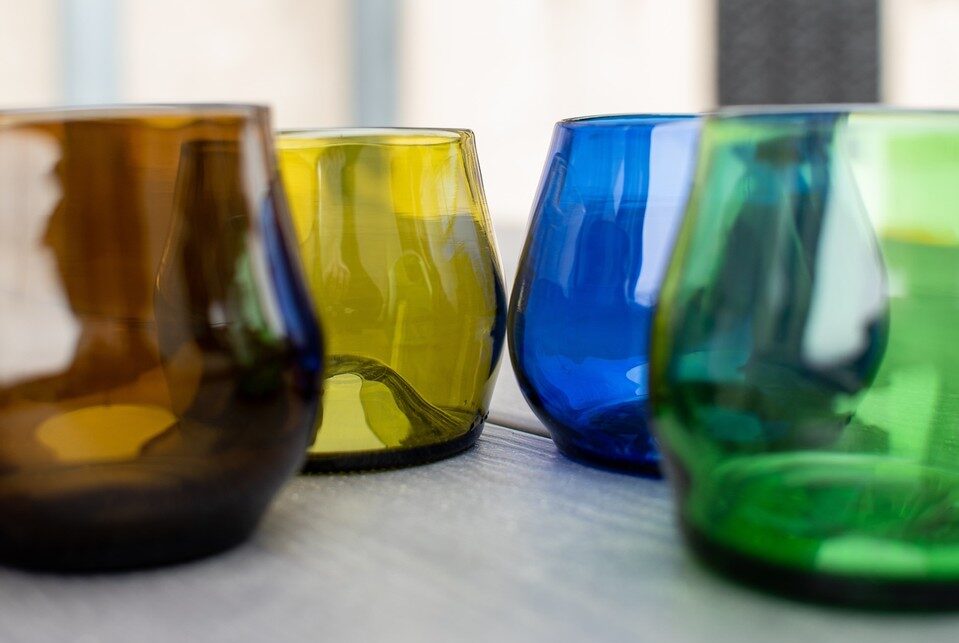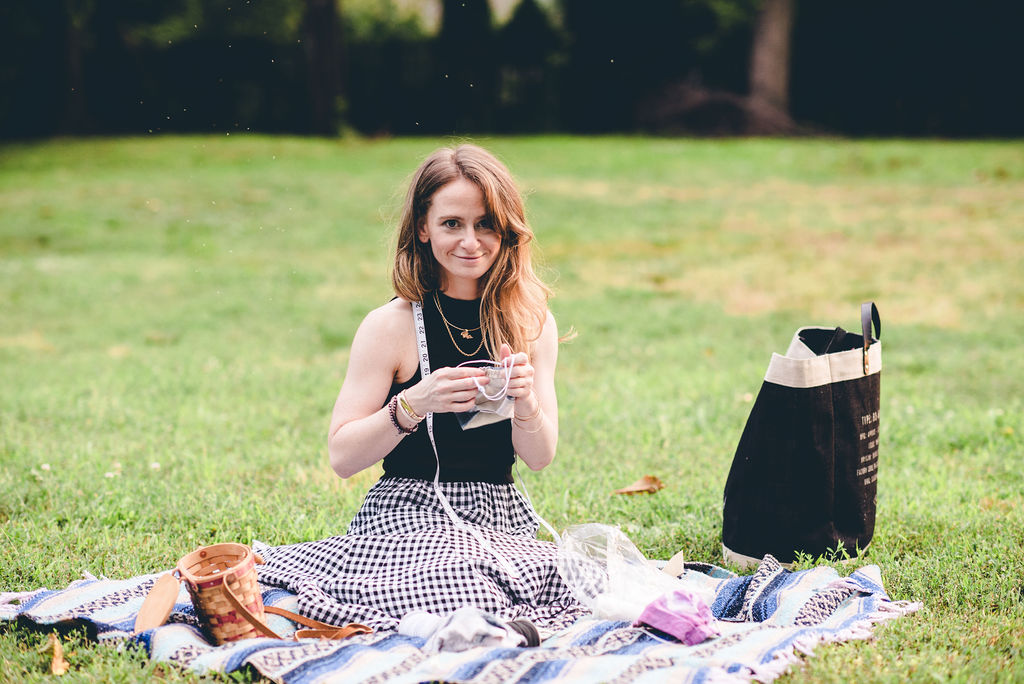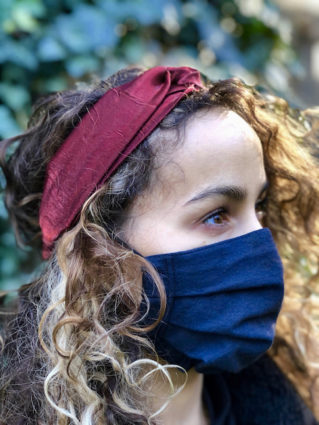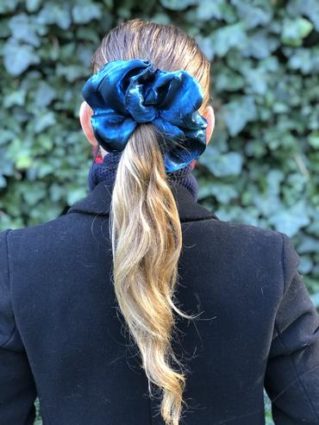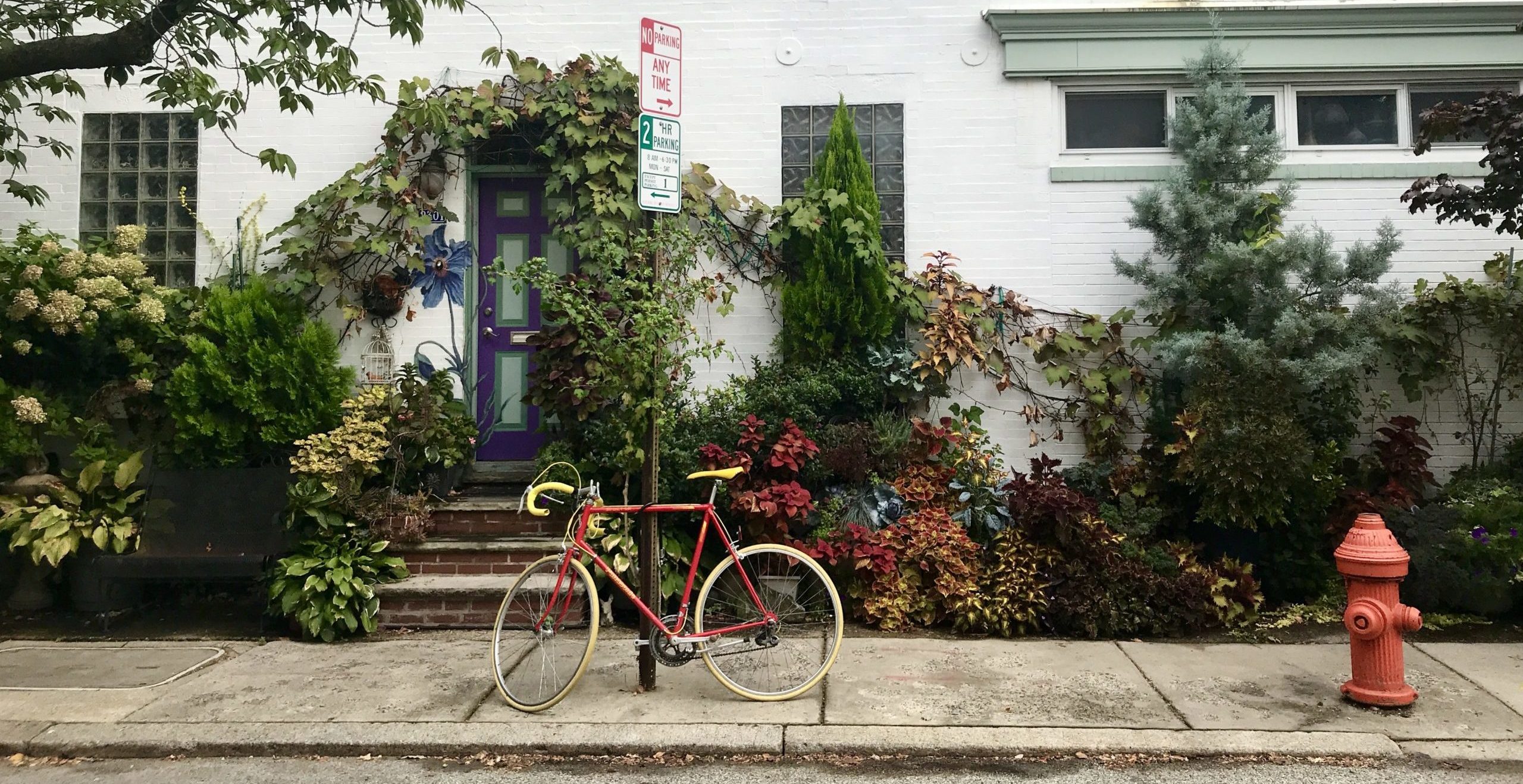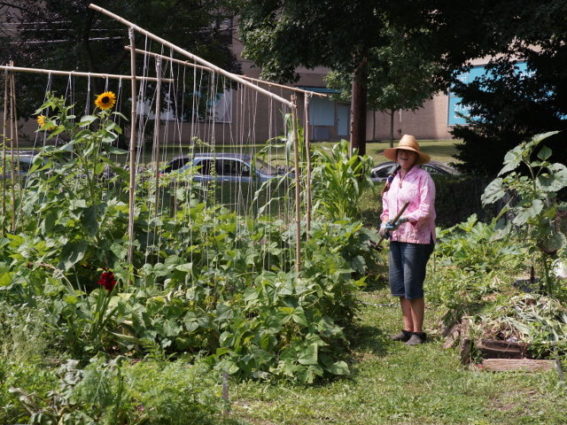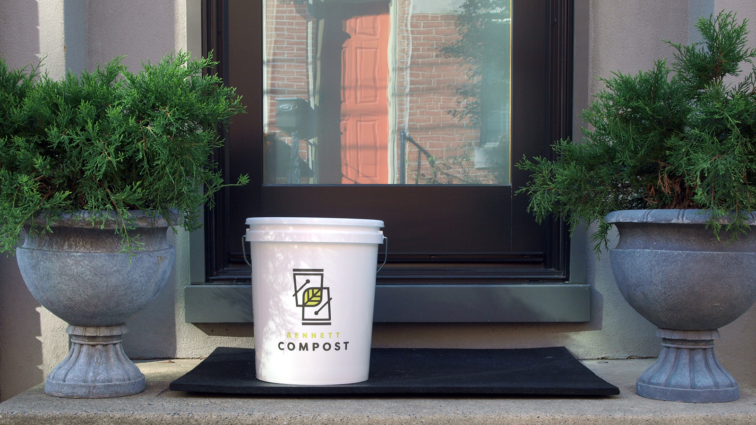If you rinse every glass jar and bottle before placing it in your recycling bin, we have some bad news. Only 33% of that glass is actually recycled. The rest ends up in landfills. Now for the good news. Sister companies, Remark Glass and Bottle Underground, are determined to close the loop and make Philly a national leader in recycled glass.
Repurposing
Founded in 2016 by three talented glass artists, Remark Glass doesn’t just recycle glass, they repurpose it. In their studio in the Bok Building in South Philly, co-founders Danielle Ruttenberg, Rebecca Davies, and Mark Ellis, turn used bottles into stunning light fixtures, barware, dinnerware, and decorative bowls. “One of our top selling items is Keepsake Glass, commemorative bottles from a graduation, wedding, or anniversary that we turn into a serving bowl or a light fixture,” said Danielle who graduated from Tyler School of Art and previously operated a glass art business in Port Richmond. “We also work in our showroom with designers on light fixtures for homes and restaurants. Forin Café which is scheduled to open in June in Fishtown is buying recycled glassware from us,” she said. Their one-of-a-kind housewares also make a great housewarming gift for a new homeowner. Shop the available selection on their online shop or consider a custom project.
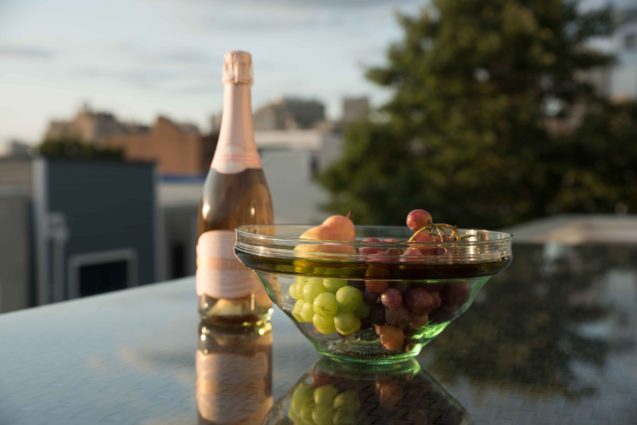
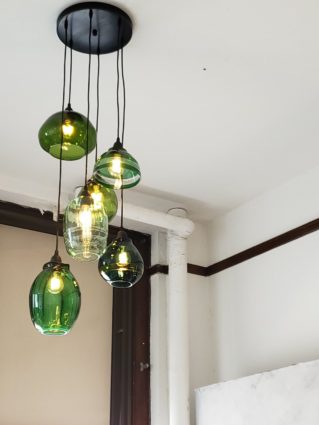
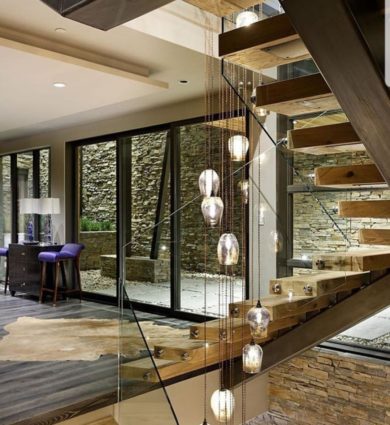
Recycling
As the first business in Philadelphia to be certified zero waste, Remark came up with a unique concept to bypass the shortcomings of the City’s glass recycling system. They created Bottle Underground, the non-profit arm of Remark, which offers an environmentally sustainable alternative to dumping used glass in landfills. “Bottle Underground offers pick-up service,” said Danielle. “We supply you with a bin to collect your glass. We just ask that you make sure all your glass is rinsed and there is no residue. You can leave the labels on. We take care of that. Once a month we will pick up your glass and return your empty bin.” There is a charge for the monthly pick-up service. “We are trying to make this as affordable as possible on a sliding scale for restaurants and corporations,” said Danielle. “We also welcome one-time drop-offs of clean, used, unbroken glass
bottles at our headquarters in the Bok Building. Just call in advance to schedule your delivery,” said Danielle.
“We accept any clean glass container and anything that has a reusable lid. We love Champagne bottles because the glass is thicker. We also look for blue glass and specialty colors,” she said.
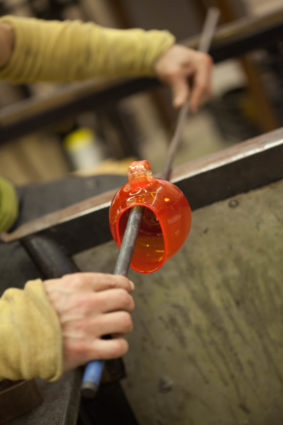
Turning bottles into art
“Prepared pieces are placed in our kiln and heated to 1050 degrees Fahrenheit – this is considered warm in glass – the temperature is stable and the glass is still in its solid state. From there, our team picks up the pieces, one at a time, on the end of a steel rod. The glass is rotated and heated in a 2000-degree reheating chamber, then tools are used at the bench to transform the material to its new shape,” explained Danielle. “Once the final shape is achieved, our team knocks the piece off the rod, stamps it with our logo, and carefully places it back into the kiln.” Co-founder Mark Ellis studied glass at the Tyler School of Art and worked in high-end glass and metal fabrication for over a decade. At Remark, he specializes in glass blowing and metal fabrication. Rebecca Davies, Mark’s wife, received an MFA at the University of the Arts, then worked at a blown glass lighting company. “We all pitch in,” said Danielle. “We have eight employees and everyone does their part to achieve our mutual goal. To build a better future and support the overall well-being of their community”. Remark Glass also strives to support the local economy by working with local businesses that share the same values.
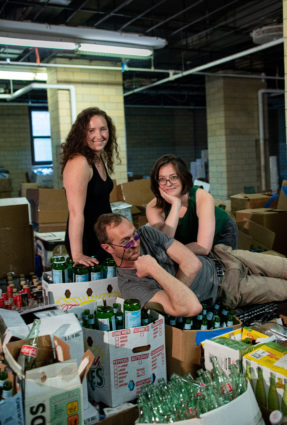
So, as Summer officially opens with coolers filled with beer and wine, think twice before tossing those bottles and consider dropping them off to Bottle Underground for reuse by Remark Glass instead. Reducing waste by composting food scraps, recycling what you can, and repurposing glass containers can help Philly achieve its zero-waste goal.
Interested. in learning other ways you can help reduce your environmental footprint? Check out our article on Four Ways to Minimize your Waste Footprint in Philadelphia or our list on 5 Things Philly Renters can do for the Environment.

